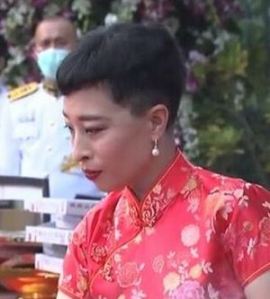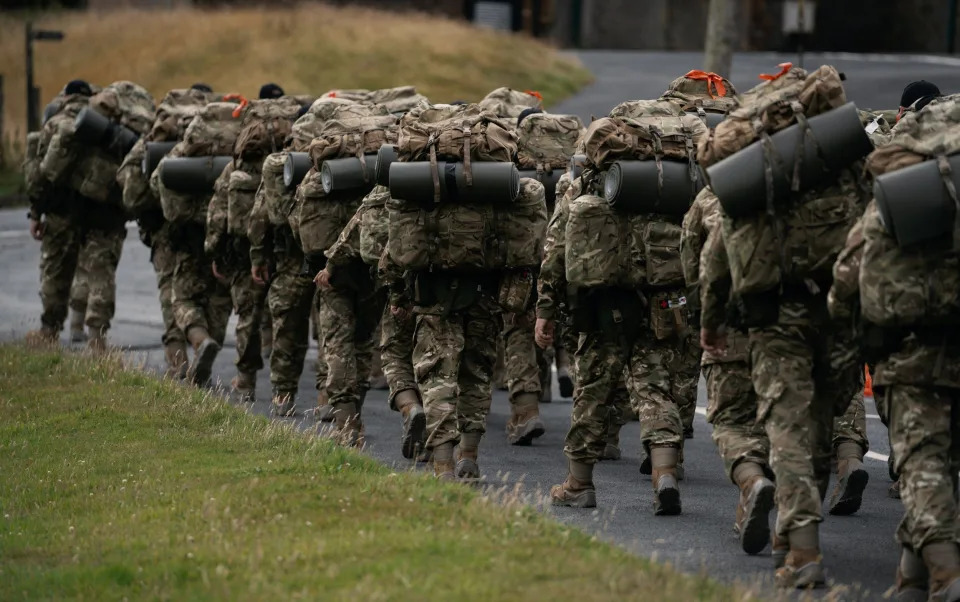Why no announcements?
8062023La Prensa Latina points out the obvious:
Bajrakitiyabha, 44, seen as a possible heir to the throne, was admitted on Dec. 14 after losing consciousness while training her dogs for a dog competition in the city of Nakhon Ratchasima, some 250 kilometers northeast of Bangkok.
Of course, there are still “well wishers” who are paraded at the hospital, but it seems that no one is particularly interested to know why the palace is silent.
The Royal Household Bureau began reporting when the princess was transported to hospital in Bangkok, have been rumored to have died in a provincial hospital. As the report recalls, the Bureau:
reported the mishap the following day but did not specify her condition until a few days later when it said she was “stable to some extent” needing artificial support for several vital organs, such as her heart, lungs and kidneys.
The last statement was provided on 7 January. Then silence:
There has since been no information on the princess, for whom authorities organized [nationwide] mass prayers and offerings to wish her a speedy recovery in front of large portraits of her.
The lack of statements is highly unusual. Six months later there is “no news…”. After initial reports, there is no no mention anywhere “about the visits of her father or her relatives to the Chulalongkorn hospital in Bangkok, where she remains.”
We do not agree with the report that there was a similar lack of transparency about King Bhumibol’s long stay in hospital. There were semi-regular reports, even if these lacked detail and were often misleading.
That there are no reports regarding the princess is in line with the long public silence on the fate of royal consort Sineenat Wongvajirapakdi.
Britain must prepare for war. America won’t save us this time
Robert Clark
Fri, 19 January 2024 at 1:12 pm CET·4-min read
From https://uk.news.yahoo.com/britain-must-prepare-war-america-121244863.html
One reason why supporting Ukraine “for as long as it takes”, and not “for as long as we can” is so important is that Ukraine’s security is irretrievably ingrained into our own. By single-handedly tying down the world’s largest nuclear arsenal power – a force over double in size and many times over in numbers of artillery and armour – the Ukrainian Armed Forces are the only thing holding back Putin’s nostalgic fantasies for an imagined return to a perceived ‘Greater Russia’ spreading westward like a plague firmly into Nato territory.
There was an argument to be made last year that Russia, its military bruised and its political leadership damaged by Putin’s hubris almost two years ago, is unable to even break out of eastern Ukraine – much less neighbouring Poland or the Baltics. As I wrote in these pages nearly two years ago, Russia is no longer even the eminent military power in eastern Europe.
Two years on, and regrettably a somewhat different picture is beginning to emerge. The hope of an all-successful Ukrainian counter-offensive smashing the Russian lines apart has slowly dwindled. Ukraine is running perilously low on ammunition and especially artillery, as financial deadlock in Washington and Brussels compound with EU promises falling drastically short leave Kyiv exposed.
Just as Ukraine is running frighteningly low on stocks as its two largest financial donors are frozen in paralysis, Russia has begun rearming and reindustrialising at an alarming rate, promising to devote between 30-40 per cent of its economic output this year on its military machine.
Buoyed by support from the world’s increasingly influential global south leaders China, and even British Commonwealth allies South Africa and India, the Kremlin is utilising its defence partnerships with Iran and North Korea to sustain enormous drone and ballistic missile bombardments over Ukrainian towns and cities this winter, inflicting further suffering and illegal civilian casualties.
Given the decreasing likelihood now for a short-term strategic Ukrainian victory, and with Russia’s rearming at scale, there are numerous calls warning that Nato should begin preparing for war with Russia within the next ten to twenty years. The chairman of Nato’s Military Committee, Admiral Bauer, is the latest in a chorus of senior military personnel to caution that the alliance must start preparing for conflict with Russia.
This comes on the back of recent intelligence assessments that suggest a likelihood of Russia attacking either tiny Moldova or Georgia next once it has achieved a victory of-sorts in Ukraine, and after it has rearmed accordingly. This would be followed by a move against the vulnerable Baltic states Russia still views through its ethno-nationalistic and Soviet Union-era prism as Russian territory, undeserving of post-Cold War independence, much like Ukraine.
The first important premise to understand about these warnings, and Admiral Bauer’s in particular, is that the threat to Nato is no longer a shared threat independent of geography. As the centre of gravity within Washington decision-making shifts decisively eastward to counter China in a longer-term struggle in the Indo-Pacific, the mood music coming out of Washington is that Europe should be able to look after its own security affairs, with minimal assistance from the US. Given the scale difference between Russia and China, and that the collective economies of European Nato are well in excess of four times that of Russia’s, this is not an unreasonable position to take.
Europe must, therefore, firmly understand this bi-partisan view of the changing security architecture as the US seeks to pursue its own legitimate national interests.
The second important premise is that we are currently falling far short of any credible conventional deterrence to avoid conflict with Russia. Whilst eastern Europe is rearming, reinvesting, and recruiting at scale (see Poland in particular) because they understand the nature of the threat and the old Cold War maxim that mass has its own quality, here in Britain we are continuing this bizarre and chaotic hollowing out of our once revered military.
Latest figures show that recruiting is down, morale at an all-time low, important procurements delayed, the Royal Navy’s inability to deploy the only Royal Fleet Auxiliary fleet stores and support vessels, effectively grounding our two multi-billion pound aircraft carriers at a time when they are sorely needed. In short: a shameful state of affairs that successive Conservative procurement and defence ministers have shambolically presided over and dithered over, yet are rewarded with knighthoods for a few weeks spent in office, as our military continues to effectively become non-deployable in many critical areas.
Nato’s Military Committee is quite right. We must relearn how to recruit, deploy, mobilise and sustain, whilst our industrial bases and societies must better align with our defence engagement and national interests. Continuing blindly down this wider path of Treasury-appeasing underinvestment, at a time of increasing American disengagement, is strategically incoherent to our national security – and that of Europe’s.

.png)

No comments:
Post a Comment